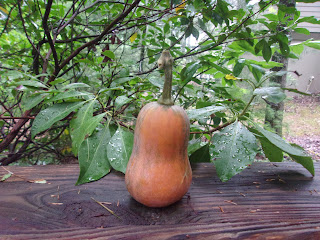Yesterday, I went to a farmer's market, the kind that happens only on a Saturday, the Mills River Farmer's Market. It was in the parking lot of an elementary school, and the vendors sat under the pop-up shelters they brought. We used to have similar green markets in South Florida, but in South Florida, I didn't find many vegetables. There was jewelry and essential oils and various craft projects and flowers, but not much that was edible.
When I first moved to Columbia, SC for grad school, I went over to the State Farmer's Market, the very same one where my grandfather used to bring the truckload of vegetables from the family farm in Lexington, SC. It was an institution of permanent structures by the time I discovered it in the summer of 1987 with lots of 18 wheeler kind of trucks, not the kind my grandfather had driven. I remember late on day, I got a great deal on a bushel of yellow squash ($3!), and only later did I wonder what I would do with that many squash. After I gave away as much as I could, we ate squash for days and had frozen squash through the winter.
Yesterday, I drove through beautiful mountain vistas, more than I needed to, because of the way the roads were named. Only on the return trip did I find the correct road--from the other side of the street, the road name changed. In some ways, I didn't mind--the surroundings were so beautiful. And finally, I found the farmer's market.
 |
| Baby butternut photographed on my back deck in Arden, NC |
I was delighted to realize that the farmer's market offered a variety of vegetables, some organically grown, some not. The farmers were there to answer questions. I noticed a basket of winter squash like these with a large pumpkin that had a sign: "These squash will be ready in 25 days." When I expressed my delight over the baby butternut squashes and asked how much, the farmer said, "Well, they're really not for sale." Then she gave me one with my corn on the cob purchase.
I bought a variety of tomatoes, 4 ears of corn, and a cucumber. I also got baked goods and some smoked fish dip. We ate well yesterday, and we will eat well again today.
My uncle stopped by on his way back from rafting with my cousin's family. It was a joy to sit on our back deck, eat baked goods that I had just bought, and catch up. It seems to be the kind of neighborhood that encourages this dropping by. And unlike other neighborhoods I've lived in, I'm happy to see our neighbors. One even brought us some tomatoes and cucumbers from her garden.
I wonder if there will be baskets of summer squash that will appear when the zucchini yield is bigger than expected?











